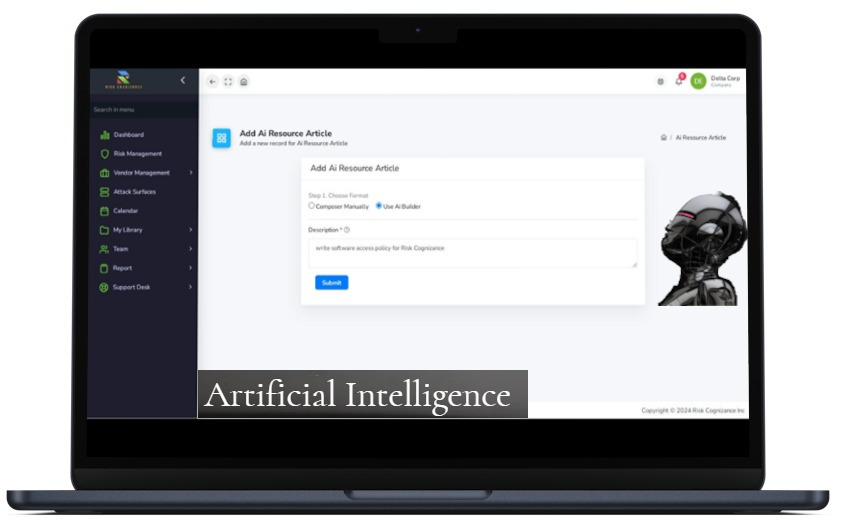Overview
Comprehensive GRC Tools to streamline operations and maintain high compliance standards. Our GRC solutions are designed to transform your compliance, risk management, and corporate governance initiatives, enabling organizations to achieve greater efficiency, reduce risks, and ensure accountability.
Why Integrate GRC Data?
Integrating GRC (Governance, Risk, and Compliance) data across your organization enables a unified approach to managing compliance, policies, risks, and controls. By centralizing your GRC processes and data, you can:
- Eliminate Redundancies: Reduce duplication of effort across departments and streamline reporting.
- Gain Real-Time Insights: Monitor risk and compliance in real time, ensuring that all stakeholders have access to the latest information.
- Enhance Decision-Making: Make informed decisions based on comprehensive data, improving your organization’s ability to address compliance issues proactively.
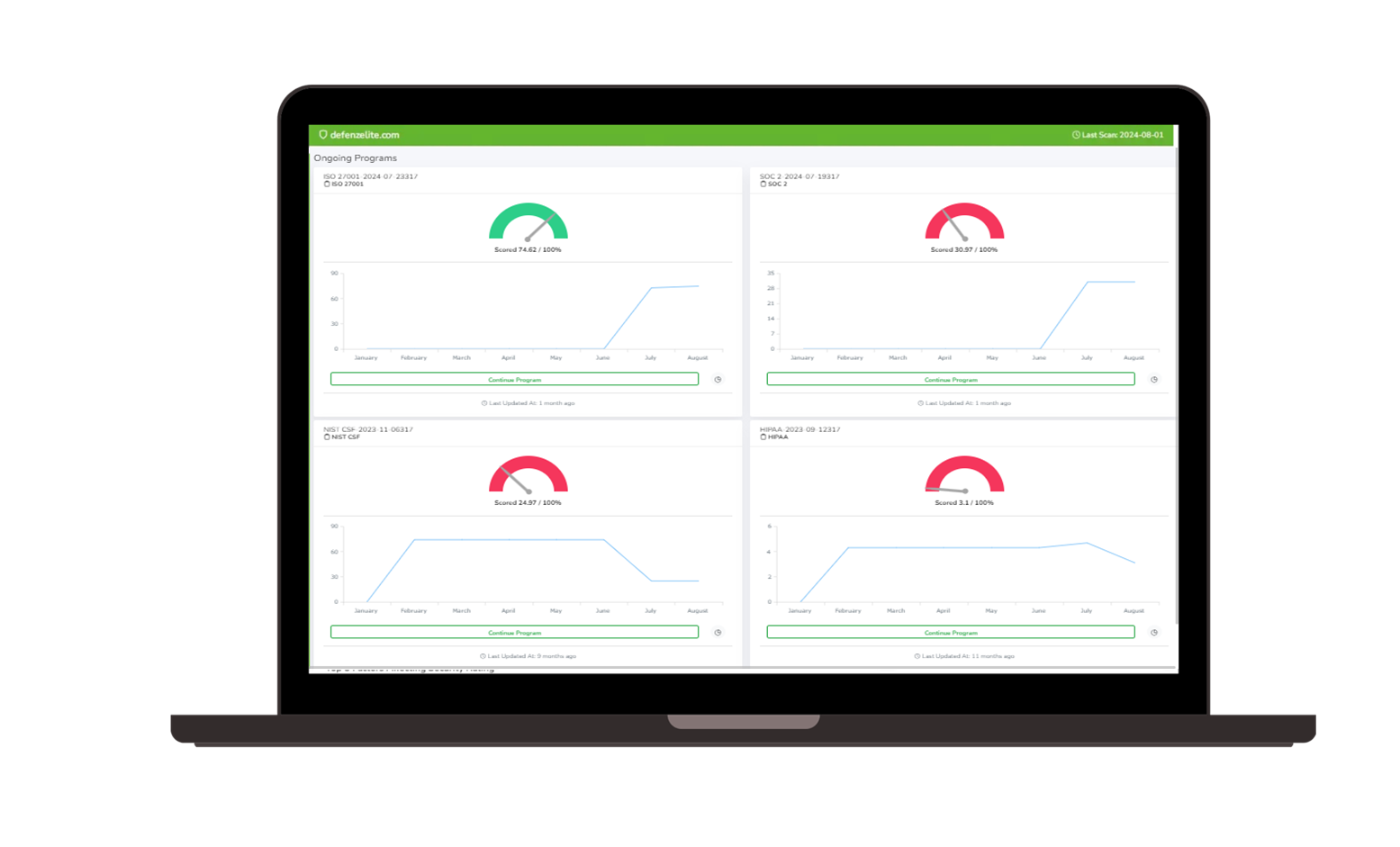 Governance, Risk, and Compliance (GRC) | 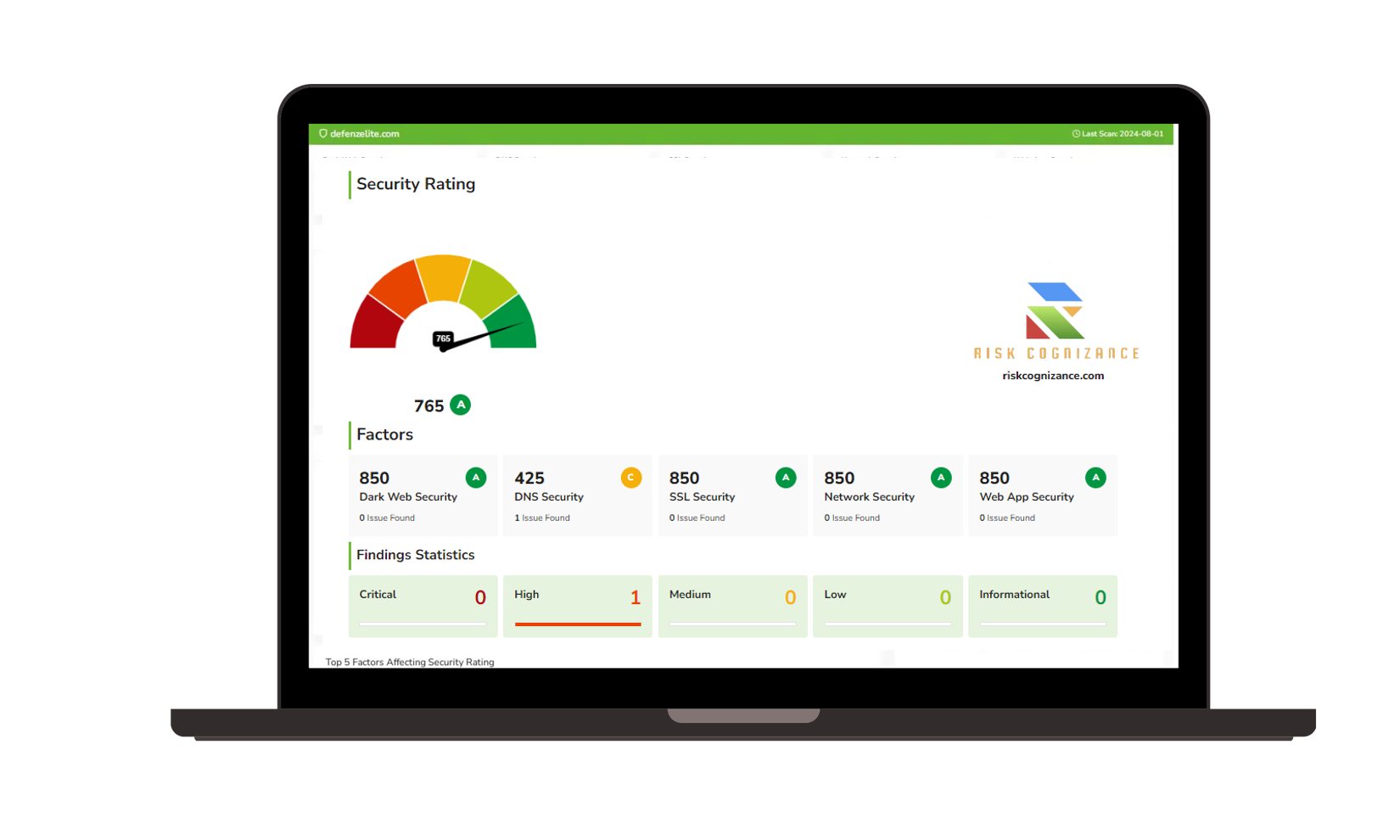 Third-party Risk Management |
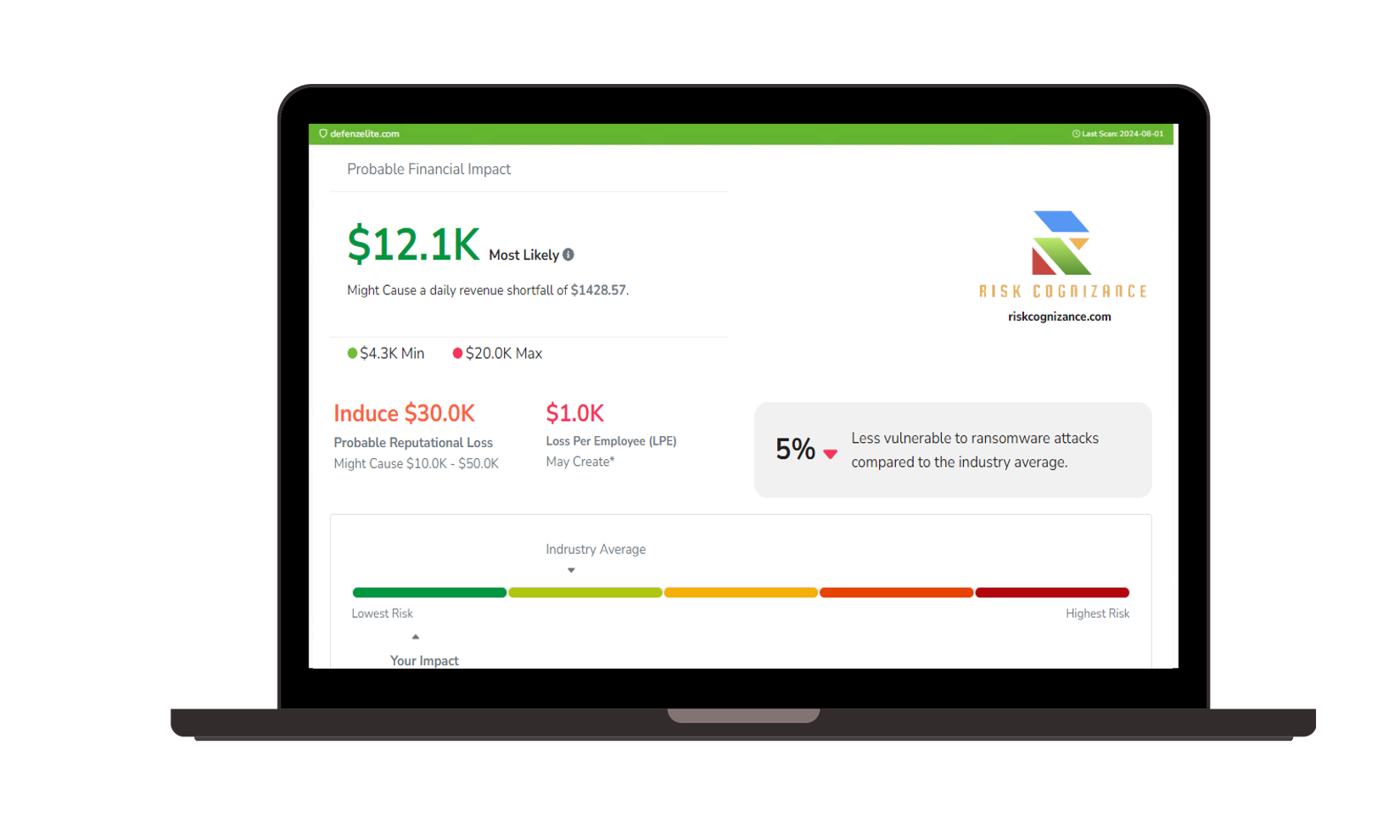 Ransomware Susceptibility | 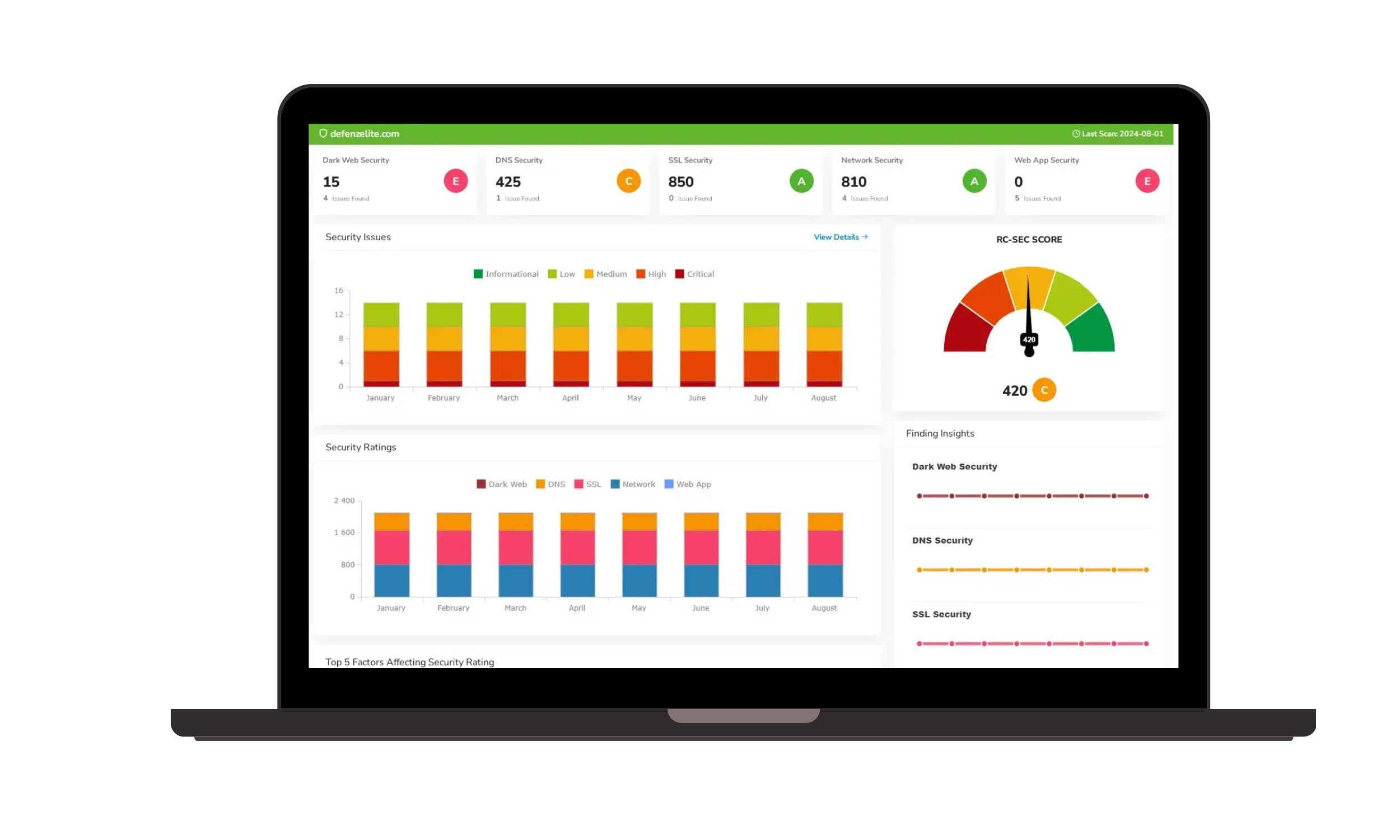 GRC and Attack Surface |
Artificial Intelligence | |
Boost GRC Efficiency with Best Practices:
Standardize Policies & Procedures
Implement a consistent policy management system to ensure all compliance requirements are met and easily updated as regulations evolve.
Centralize Risk Management
Utilize a centralized risk management platform to identify, assess, and mitigate risks across the organization, ensuring a proactive approach.
Automate Compliance Workflows
Automate repetitive compliance tasks, such as evidence collection and reporting, to reduce manual workload and minimize the risk of errors.
Enable Continuous Monitoring
Implement continuous monitoring to ensure ongoing compliance and detect potential issues before they escalate into significant risks.
Integrate Compliance Training
Provide online employee training to keep staff informed of the latest regulations, policies, and procedures, ensuring they understand their role in maintaining compliance.
Types of GRC Solutions:
Policy Management
Manage and update corporate policies in a centralized location to maintain compliance and communicate effectively across departments.
Risk Management
Identify, analyze, and respond to potential risks that could impact your organization’s operations, compliance status, or reputation.
Online Employee Training
Offer engaging and interactive online training modules to educate your workforce on compliance requirements, reducing the risk of non-compliance due to human error.
Compliance Automation
Utilize automated tools to streamline compliance reporting, evidence collection, and audit management, reducing time and resources spent on compliance efforts.
What is GRC Software?
Governance, Risk and Compliance (GRC) software is a holistic business solution designed to address corporate governance, enterprise risk management, and regulatory and compliance requirements. It resolves the challenge of operating in complex regulatory environments, mitigating risks, and maintaining effective governance.
Common features of GRC software
The table below lists common features you need to look out for when buying GRC software solutions.
Create, review, edit, approve, and store policies and share them across the organization. | |
Change management | Support process modifications based on regulatory updates and help management in make changes to relevant controls, policies, and assessment techniques. |
Assess IT and operational risks in different business processes using qualitative and quantitative methods, such as benchmarking and stochastic analysis. | |
Help internal auditors plan and schedule audit tasks, track audit results, prepare audit reports, and suggest remediation methods. | |
Support users in identifying, recording and remediating events or activities that can lead to regulatory noncompliance, downtime, or financial or reputation loss. | |
Plan, define, control, and document activities around different types of compliance requirements such as financial reporting, healthcare regulations, or other service level agreements. | |
Dashboard | Provide real-time information on key compliance metrics, performance indicators, and risk levels to help management make decisions around controls or corrective action. |
Prepare, store, and archive audit reports, risk assessments, compliance reports, and attestations. | |
Notifications | Alert administrators or other authorized persons about elevated risks, compliance breaches, or any unusual activity through messages or emails. |
What type of buyer are you?
Industry regulations and the increasing risks of new and advanced security threats make GRC solutions invaluable to all organizations. Below we discuss two broad categories of businesses and the key attributes they need to look for in GRC solutions.
Small and midsize businesses (SMBs): GRC platforms offering basic functions such as reporting, auditing, risk management, and compliance management will help such buyers ensure organization-wide compliance and uniform risk mitigation strategies. (Several software vendors offer GRC solutions tailored to SMB needs and budgets.)
Large enterprises: Enterprises are under scrutiny by a larger number of regulations than SMBs due to their scale of business and, typically, geographically-distributed operations. Multinational companies should look at GRC solutions that offer support in different geographies. They may also need to opt for customized GRC solutions to meet their specific compliance and business policy needs.
Additionally, there are GRC solutions that cater to specific industry verticals such as banking and financial services (BFS), healthcare, and governments/public sector. Ask vendors on your shortlist if they offer GRC software solutions tailored to your industry.
Benefits of GRC software
In addition to ensuring proper governance, compliance with regulations, and risk management, here are some other benefits that you can see by using GRC software.
Save time by automating tasks: GRC platforms help employees save time by automating reporting, compliance, and risk assessment tasks. Employees don't have to manually prepare reports, plan audit jobs, etc. but can use the software to complete these tasks.
Improve collaboration by unifying processes: This software helps improve collaboration between your IT, operations, security, and legal teams by aggregating data on risks, compliance, policies, and controls from across the organization.
Reduce compliance costs: GRC tools help capture and notify different IT and operational risks, thereby reducing the cost of managing vulnerabilities and saving on regulatory expenses such as fines.
Key considerations when buying GRC software
Choosing the right GRC platform can be a challenge because of the number of options on the market. Here, we discuss a few things you should consider when purchasing GRC software.
Cloud vs. on-premise software: Choosing a deployment option is one of the key considerations when buying any type of software. Most GRC software vendors offer both SaaS and on-premise versions. Cloud-based GRC systems are more popular among SMBs due to their lower upfront costs.
Support compliance with multiple regulations: Organizations may cut into regulatory frameworks outside their industry. For example, a healthcare practice that accepts online payments; this practice will be subject to HIPAA as well as PCI-DSS. Each businesses should evaluate its individual business model before purchasing to better identify a GRC solution that accommodates all the different regulatory frameworks applicable.
Integrations: GRC software that integrates with general performance management systems, BI tools, etc. help provide a consolidated picture of your overall business operations. Integration with accounting software helps when financial approvals are needed for incident management or risk training.
Achieve Comprehensive GRC Efficiency:
Our GRC Solutions are designed to provide a unified platform for organizations to manage compliance, risk, and governance holistically. By integrating data, automating workflows, and following GRC best practices, you can boost your organization’s efficiency and maintain high compliance standards.
Contact us today to learn more about how our GRC tools can transform your risk and compliance management processes!
Request Callback
